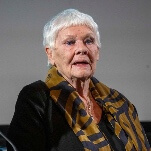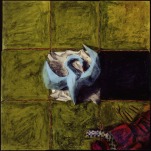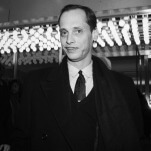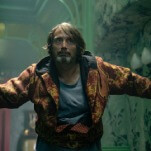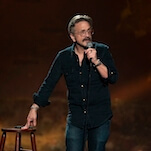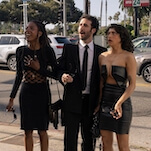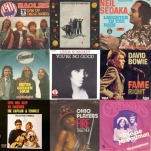Before he’d published a single book, Pulitzer Prize-winner Oscar Hijuelos sometimes spent his lunch hour away from a Manhattan ad agency pawing through the stacks of the opulent Pierpont Morgan Library. There, he would gaze at a display featuring a sliver of wood and a bit of nail—remnants, purportedly, of the True Cross. The exercise made him feel as though he was “somehow communing with the past, like a Borges character.”
That’s always been Hijuelos’ prevailing perspective. In his memoir, Thoughts Without Cigarettes, he communes with his own past, ambling from his awkward coming of age as the second son of Cuban immigrants in New York’s Morningside Heights neighborhood into the dream world of a sweet, self-effacing literary life.
Hijuelos, whose books include The Mambo Kings Play Songs Of Love and A Simple Habana Melody, was a fair-skinned, towheaded boy who struggled to speak Spanish. He was “something of a lost soul” whose childhood was disrupted by a long hospital stay with a kidney disease he contracted on a family trip to his mother’s hometown. She never let him forget that “something Cuban” had nearly killed him, instilling in her son a lifelong ambivalence about his heritage.
A writer who loves to linger, Hijuelos recognizes when he might be imposing on readers with minutiae; he sprinkles his storytelling with apologies. And there are a few notable oopsies: He compares one childhood incident involving a water hose and a dapper man on a bicycle with “a 1930s Max Roach comedy,” crediting the bebop drummer, rather than Hal Roach, Laurel and Hardy’s producer. Elsewhere, he mentions reading “Lee Krasner’s Realist,” making the late painter, not the satirist Paul Krassner, the unlikely founder of the subversive paper.
But Thoughts Without Cigarettes teems with life in all its bumbling splendor, much like the streets of New York, and Hijuelos’ fiction. Unconvinced of his writing abilities until well into adulthood, he gorged himself on great books to make up for lost time. From the beginning, he hoped to write as cleverly as his onetime teacher, Donald Barthelme; as magically as Gabriel García Márquez; as soulfully as Anton Chekhov and Chaim Potok; “as jiveishly” as James M. Cain and Iceberg Slim.
Few, however, write as wistfully as Hijuelos. He recalls hustling his widowed mother downtown to show her the bookstore window displaying copies of his debut novel, arranged in a pyramid. Upon arrival, he was crestfallen to see the books had been replaced by another title. “I took my mother to a pastry shop nearby and bought her some napoleons,” he remembers—“the sort my pop occasionally brought home.” That sense of longing suffuses his memoir, as it always has his novels. Fans of Hijuelos’ fiction will likely be charmed. Newcomers may find the nostalgia, like the napoleons, a bit rich.




